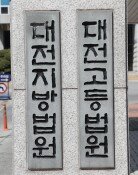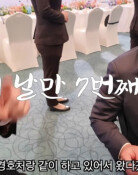The Publication of Classified Diplomatic Documents
The Publication of Classified Diplomatic Documents
Posted January. 25, 2005 22:44,
It has been confirmed that in 1974, the Chinese government delivered a message indirectly to its counterpart in Korea to discuss establishing a diplomatic relationship between the two countries. It also was revealed that the Korean government suggested burying the remains of Korean people, who died in Japan at the time when Korea was under Japanese colonial rule, to the Japanese authorities. These stories was released from diplomatic documents which were recently opened.
Chinas Stance over the Sino-Korea Diplomatic Ties-
The Chinese government sent an unofficial diplomatic message to the Australian government through a foreign channel, Mr. Spur, in whom the Chinese Foreign Ministry had confidence, and the Australian Ministry of Foreign Affairs delivered the message to Korea, according to a written dialogue held between the then director of Northeast Asia Division 2 at the Korean Foreign Ministry and Goh Gin, the first secretary at the Australian Embassy in Korea, on October 23, 1974.
The first secretary said in the dialogue, The Chinese message aims to deliver the stance of the Chinese government in that it will begin an unofficial meeting with Korea if Korea is willing to cut diplomatic ties with Taiwan and that it will oppose Korea keeping its liaison office in Taiwan once the two countries establish a bilateral diplomatic relationship.
In the response, the director of Northeast Asia Division 2 asked, What was Chinas stance when Australia negotiated with China over diplomatic ties? The first secretary explained, China only made an issue about Taiwan on the negotiation table. That shows China didnt take the North Korea factor seriously in building up diplomatic ties with Korea in the 1970s. Since then, a diplomatic relationship between Korea and China was established after 18 years.
Request by Korea to Bury the Remains of Koreans without Relatives in Japan-
The Park Chung-hee administration suggested burying the remains of Koreans who were conscripted or forcefully enlisted by the Japanese government for labor or military forces and died in Japan without relatives, to the Japanese land.
The Korean authorities insisted that Japan should return the remains of all Koreans before 1996, but it changed its stance and presented a second best, burying all the remains in Japan when it found it difficult to figure out whether they belonged to North or South Korea.
However, Japan refused the proposal saying, The plan is against Japanese sentiment. Relatives of the remains may appear belatedly and make an issue of it, and instead suggested, How about laying them to rest in Korea regardless of where they are from?
Hyong-gwon Pu bookum90@donga.com




![“배달 시키면 버렸는데”…피자 가운데 ‘그것’ 200% 활용 꿀팁 [알쓸톡]](https://dimg.donga.com/c/138/175/90/1/wps/NEWS/IMAGE/2026/01/07/133111146.3.png)


